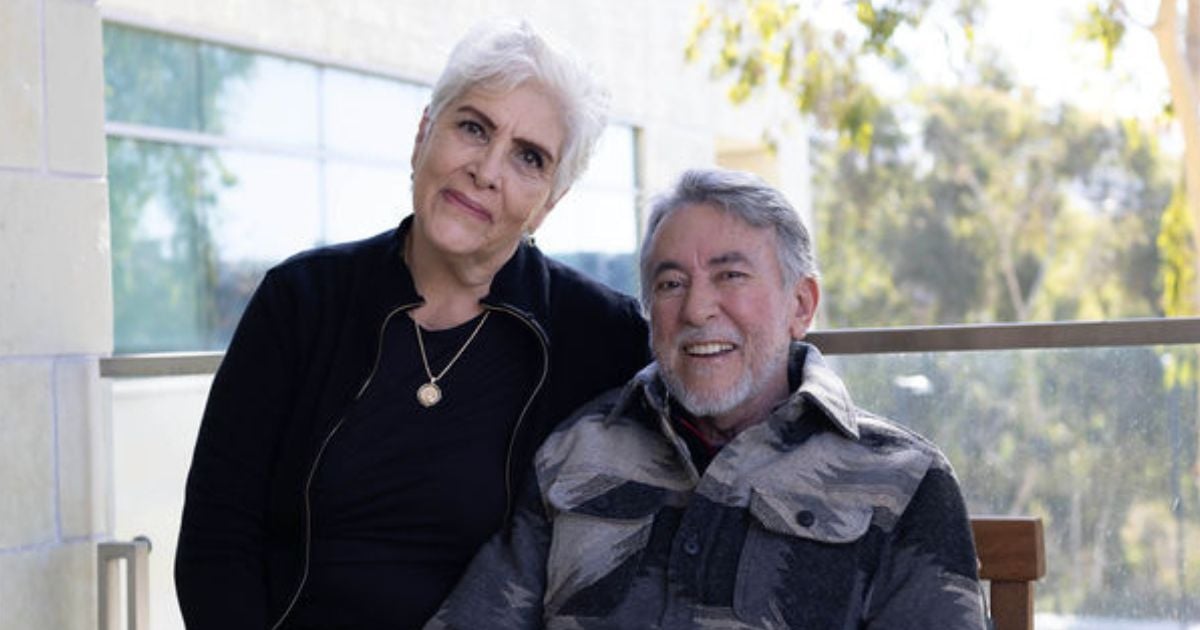Breast Cancer
If you’ve been diagnosed with breast cancer and are unsure where to begin, start your journey with UC San Diego Health.
We offer innovative therapies and advanced care options that you won’t find anywhere else in the San Diego region, ensuring you receive the highest level of support and treatment.
Nationally Ranked Cancer Care
UC San Diego Health is consistently ranked among the top 50 in the nation for cancer care by U.S. News & World Report. As the only National Cancer Institute (NCI)-designated Comprehensive Cancer Center, we hold the highest distinction awarded to U.S. cancer centers. This ensures you receive exceptional care, with studies showing improved patient outcomes at NCI-designated centers.
Our breast cancer program is accredited by both the Commission on Cancer (CoC) and the National Accreditation Program for Breast Centers (NAPBC). These accreditations highlight our commitment to continually advancing the quality of care for breast cancer patients.
Types of Breast Cancer We Treat
Your UC San Diego Health care team treats all types and stages of breast cancer in women and men. We also offer second-opinion services.
Ductal and lobular carcinoma
Ductal carcinoma in situ (DCIS) and other in situ breast cancers
HER2-positive breast cancer
Hormone receptor-positive breast cancer
Inflammatory breast cancer
Invasive breast cancer
Recurrent breast cancer
Triple-negative breast cancer
Diagnosing Breast Cancer Genetic Testing
The first step in developing a treatment plan is to accurately diagnosis your condition.
Breast Imaging & Biopsy
We're a Breast Imaging Center of Excellence and offer advanced image-guided biopsies to diagnose and stage cancer.
Genetic Testing
If you have a family history of breast cancer, you may receive genetic testing and specialized screenings.
Video: What to Know about Breast Cancer

Dr. Rebecca Shatsky, a medical oncologist at UC San Diego Health, answers your questions about breast cancer prevalence, diagnosis and treatment.
Comprehensive, Personalized Treatments
At UC San Diego Health, you’ll find specialists who work together to understand your disease and develop a treatment strategy that is unique to you. Your care plan may include one or a combination of the following treatment approaches.
Breast Surgery and Reconstruction
Breast cancer surgery is becoming less invasive, often done without a hospital stay. Many women qualify for breast-conserving procedures like lumpectomy. UC San Diego Health surgeons specialize in sentinel node biopsy to help prevent cancer spread. If a mastectomy is needed, you’ll have access to a full range of reconstruction options with board-certified plastic surgeons.
Radiation Therapy
Your doctor may recommend radiation therapy to lower the risk of recurrence. Our radiation oncologists use advanced techniques to target cancer while sparing healthy tissue. UC San Diego Health was among the first in the nation to offer high-dose-rate brachytherapy with the SAVI applicator and is a leader in developing accelerated partial breast irradiation as an alternative to whole breast treatment.
Chemotherapy and Other Therapeutics
Advances in genetics are transforming breast cancer care. We use genetic testing to tailor treatments to your cancer. If infusion therapy is needed, you’ll receive it at our breast cancer–dedicated center in the Koman Family Outpatient Pavilion — the only one of its kind in the region — featuring comfortable chairs, panoramic canyon views and convenient access to your care team.
Immunotherapy
Immunotherapy harnesses the power of your immune system to fight cancer and is an emerging treatment for certain types of breast cancer, including some cases of triple-negative breast cancer (TNBC). It works by helping your body recognize and attack cancer cells more effectively. If immunotherapy is appropriate for your cancer type, your care team will guide you through the latest advances and how they may fit into your personalized treatment plan.
Breast Cancer Rehabilitation
After breast cancer surgery, rehabilitation — including occupational or physical therapy and guided exercise — can help restore strength and mobility in your arms and upper body. It also plays a key role in preventing or managing common side effects like lymphedema and axillary web syndrome (cording).
Clinical Trials
In addition to standard treatments, you may be eligible for a clinical trial, giving you early access to some of the most promising therapies and technologies. UC San Diego Health is a national leader in developing and leading clinical trials, expanding your options and connecting you to the latest advances in breast cancer care.
Survivorship Program
Your team will stay with you for years through our Survivorship Program. While most surgeons don't follow their patients for very long after surgery, our entire team is involved in your follow-up care for many years.
Breast Cancer Care Team
At UC San Diego Health, your care is led by a multidisciplinary team of doctors who specialize in breast health. Highly specialized multidisciplinary care is a hallmark of top-tier academic medical centers such as UC San Diego Health. For patients like you, it means you receive the highest level of care. Find a breast health specialist.
Testing for Hereditary Breast Cancer
Learn About Your Risk
Up to 10 percent of all breast cancers are caused by genetic changes or mutations that can be inherited. Mutations of the BRCA1 and BRCA2 genes are understood to be responsible for most cases of inherited breast cancer. We offer genetic testing to identify BRCA and other mutations. Testing can be completed with a simple blood or oral swab test.
Second Opinion Services
When you have a diagnosis as serious as cancer, you deserve a second opinion on your treatment options.
Patient & Family Support Services
At UC San Diego Health, your care goes beyond treating disease. It also includes supporting you and your loved ones emotionally throughout your cancer journey. Most of our support services are free.



